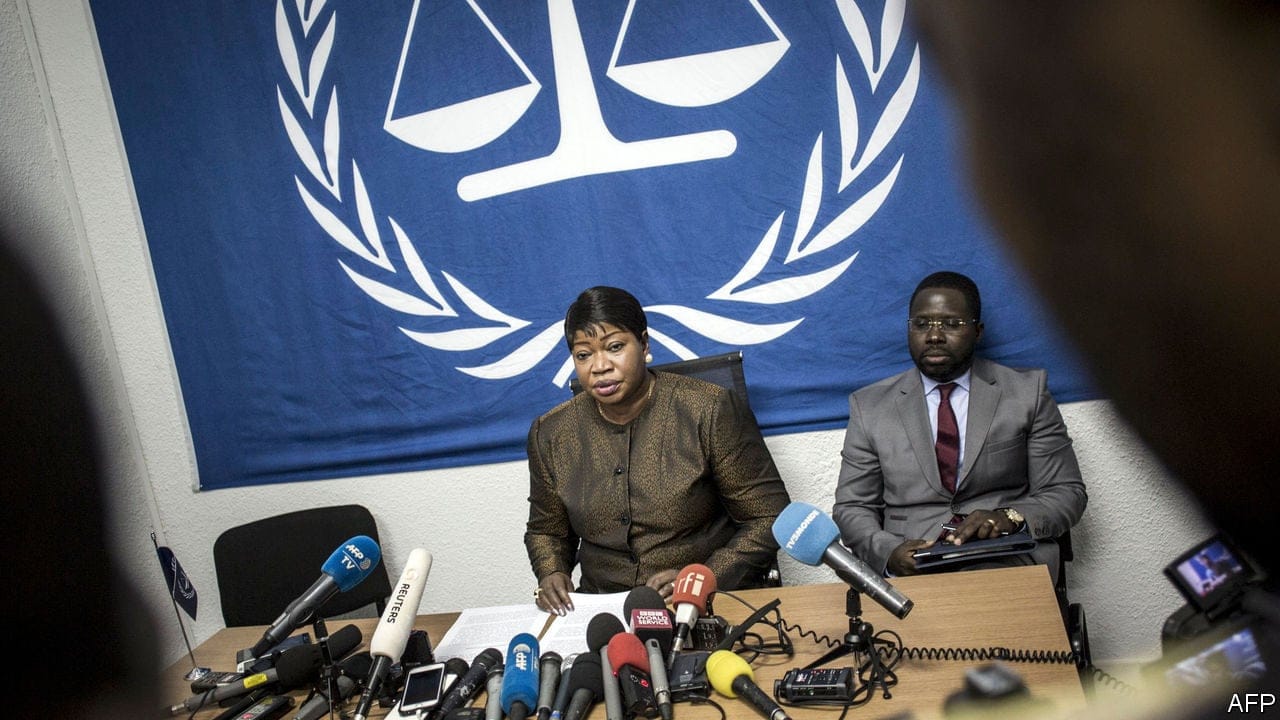Why does the International Criminal Court not have more support?
America and Israel are not the only countries to reject the court’s authority

THIS MONTH President Joe Biden lifted sanctions on Fatou Bensouda, the outgoing chief prosecutor of the International Criminal Court (ICC), imposed by his predecessor, Donald Trump. Mr Biden also rescinded sanctions, which included asset freezes, on other court officials. The court is investigating whether American forces committed war crimes in Afghanistan. It was a modest victory for the ICC, but under Mr Biden America will continue to oppose the investigation and reject the court’s authority. A reminder of the court’s limitations soon followed on April 8th when Binyamin Netanyahu, Israel’s prime minister, reiterated his view that his country would not accept the court’s right to investigate alleged war crimes in the Palestinian territories. America and Israel are not alone in their refusal to sign up to the ICC. Other major absentees are China, India, Indonesia and Russia. Plainly countries with the worst human-rights records, such as Saudi Arabia, are bound to be hostile to the court. How does the court work and why do so many countries refuse to join it?
More from The Economist explains

What is a carry trade?
Borrowing cheaply to buy high-yielding assets is popular, but risky

The significance of liquid water on Mars
There could be an ocean’s worth deep underground

Why Russian troops are attacking on motorbikes
New conditions give rise to new tactics
What is “two-tier” policing?
The conspiratorial belief has spread online, fuelling disorder in Britain
Would legal doping change the Olympics?
The impact would be smaller—and worse—than proponents of drug-taking claim
Do vice-presidential picks matter?
If they have any effect on an election’s result, it is at the margins